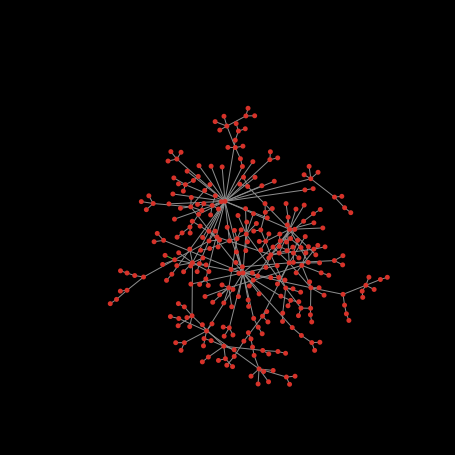Everyone has heard of the phrase “the rich-get-richer”, as it is often used to describe the inequality in economics. This theory cannot only be applied to economics, but it is also used in understanding networks and their power laws. When a network has a certain number of nodes, it usually gains new connections in proportion to how many it already has, thus resulting in an rapidly increasing network. In contrast, networks with fewer nodes, usually end up with less connections, or lose connections over time. In class we discussed power laws, and how they pertain to networks. We saw that the probability that page “l” experiences an increase in popularity is directly proportional to “l’s” current popularity. The more links a page has, and the more time it appears in the searches, the more likely it is to gain more connections.
In an article entitled, Why the Rich get Richer, researchers from various universities investigate the underlying principles behind preferential attachment, and how “the rich-get-richer” model applied to networks. They have found that internet routers “could make trade offs between the network distance between nodes and the number of connections between them. By tweaking the conditions, they could make preferential attachment — a power-law distribution of the number of connections — stronger or weaker.” The full published write up, on the study can be found here.

An example of “preferential attachment”


I think this is why it’s important to spread cultural norms that it is our responsibility to seek out poorly connected nodes - be they blogs, communities, individuals, academic fields… I mean, that is sort of one of the things anthropology does I think? Along with a lot of other fields of study - find what hasn’t been studied a lot already.